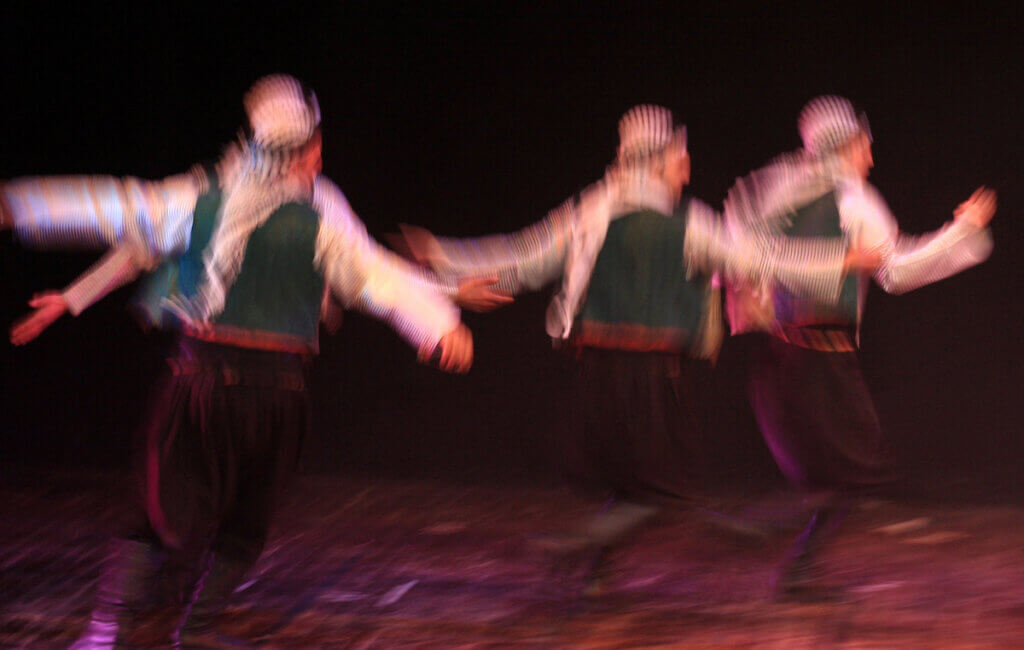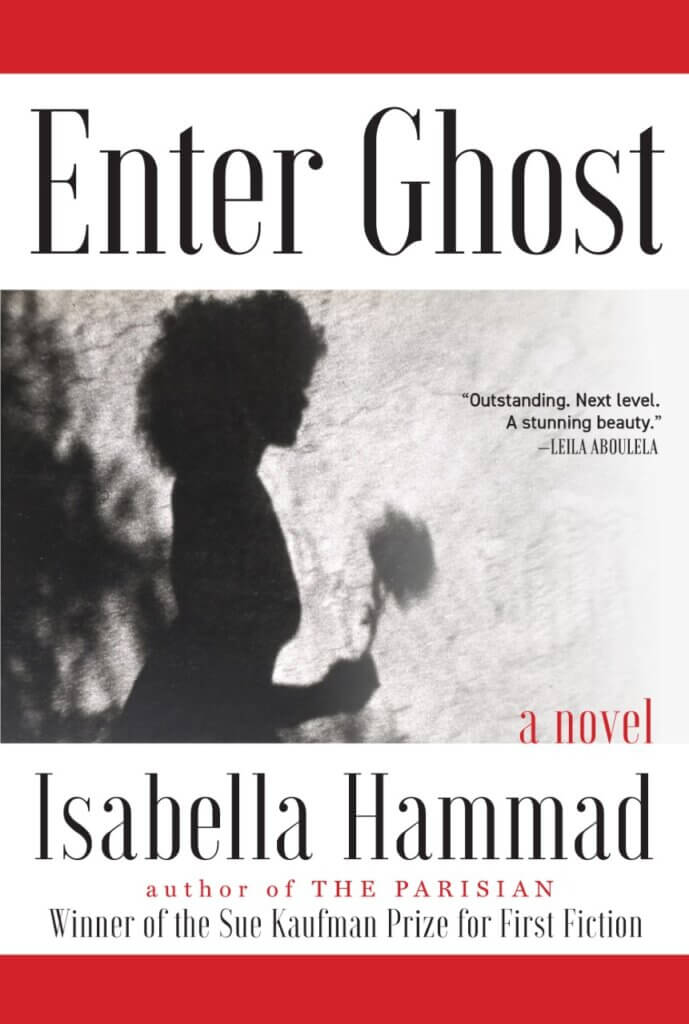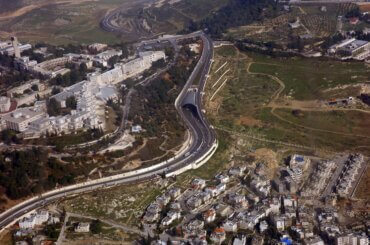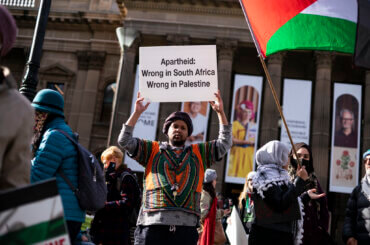ENTER GHOST
by Isabella Hammad
336 pp. Grove Press, $28.00
During the First Intifada, the Jewish radical Arna Mer Khamis established “Care and Learning” in the Jenin refugee camp in Palestine. Her program was meant to help Palestinian children and other refugees process traumas of war and relocation while training them in arts and theater. In 2006, Khamis’s son Juliano Mer Khamis, drawing on his mother’s legacy, established The Freedom Theater at Jenin and became its general director. In short time the Theater began training young Palestinian actors and dedicated itself to preparing a “generation of artists and leaders, who will one day be at the forefront of the Palestinian liberation movement”
Yet because of its emancipatory commitments the Freedom Theater has been a frequent target of both conservative forces in Palestine and the Israeli state. In 2011, Juliano Mer Khamis was assassinated in a still-unsolved political mystery; in subsequent years Israeli forces raided the theater and arrested, interrogated or beat actors working there. In September, 2022, Bilal Al-Saadi, the current chairman of the Freedom Theater, was arrested at an Israeli checkpoint and sentenced to six-months administrative detention without charge or trial. In January of this year, Al-Saadi’s brother Yahya Zubeidi, was arrested at a military checkpoint and charged with “involvement in terrorist activity.”
In an afterword to her brilliant new novel Enter Ghost, British-Palestinian writer Isabella Hammad thanks members of the current Palestinian Theater, and Palestinian actors working in Palestine, for speaking to her in preparation for writing the story. Her finished book is a moving, masterful staging of the Palestinian present using theater, theatrical tropes, and the lives of Palestinians in the diaspora as a proscenium for the relationship between culture and politics, life and art, colonialism and self-determination, love, and freedom.
Hammad’s first book was The Parisian, based on the life of a man born in Nablus who returns to pre-1948 Palestine after years abroad. Her new book also centers on a diasporic Palestinian, Sonia Nasir, here on a journey from London, where she lives and works as an actress, back to a Palestine she has anxiously stayed away from since becoming an adult. Sonia has come to see her sister Haneen, a University professor who lives in Haifa but works in Tel Aviv. That one sister lives in Israel or “‘48” as Palestinians call it and another in the West is a source of emotional tension, as is a family history dotted with absences and political mysteries Sonia wishes to unfold: she visits the family ancestral home in Haifa only to learn it has been sold away; their father, a one-time Communist and member of the Al-Ard movement, refuses to discuss his political past as a revolutionary; years earlier, when they were teenagers, Haneen and Sonia’s Uncle Jad had taken them to the Occupied Territories to meet a female hunger-striker named Rashid, who later perishes. When Sonia learns of her death only after her return to Palestine, Haneen’s failure to share the news opens a complex emotional door of betrayal and responsibility for the many pieces of her life as a Palestinian she has failed to comprehend in exile.
Enter Ghost thus becomes a novel of return, reconciliation, and desire for events and people lost or webbed in Palestinian history; in short, a book of ghosts. Here, Hammad deftly deploys conceptual magic. Sonia is enlisted by the Palestinian director Mariam to play Gertrude in a West Bank production of Shakespeare’s Hamlet. The book’s title draws from Act 1, Scene IV of the play, when the ghost of his dead father challenges Hamlet to avenge his murder by the King Claudius. For Hammad, to quote Hamlet himself, the play becomes “the thing” to catch the conscience and consciousness of her main character’s struggle to confront full force the meaning of life under Zionist Occupation.
The play’s cast is an assemblage of dedicated amateurs and professionals from across ‘48 and the West Bank, including a young pop singer named Wael (Hamlet) and a young man named Ibrahim with whom Sonia has a brief romantic fling. The play’s rehearsals are conducted against a backdrop of Israeli sieges on a Palestinian village and a blockade on the Al-Aqsa mosque. The introspective Sonia is goaded into action by these events, confronting an Israeli guard at a checkpoint when Wael is detained and leading her sister to join her in a protest in Jerusalem. Meanwhile, the play’s production is thrown in question when Mariam’s brother is held and accused of illegal fundraising for the production, the cast suspects one of their own may be a spy, and Wael leaves the production.
Hammad clearly but subtly intends us to understand that, for these Palestinians, life imitates art imitates life. “Something Rotten in the State of Israel: Palestinian production of Hamlet causes international stir” trumpets one newspaper headline. The actors’ courage and dedication to their craft is meant to be a bellwether for the Palestinian resistance going on in the streets just outside the theater. Eventually, the play’s scheduled performance is shut down, the stage confiscated like so much Palestinian land. Not to be deterred, the troupe regathers. Mariam steps in to play Hamlet, and the story reaches a stunning 5th Act climax in a magisterial bit of scripting by Hammad.
The reader feels this conceptually rich storytelling deeply through Hammad’s dense emotional weaving of character. Sonia’s Hamlet-like ambivalence about commitment, identity, and dispossession is rendered through interspersed musings about the piling up of personal losses in London and now in Palestine. Hammad also tracks Sonia’s upward ascent to political awareness with an affirmation of herself as a woman. The relationship between sisters in the novel is brittle and tender and maps the emotions of a diasporic Palestinian family onto separations traceable to the catastrophes of 1948.
Finally, there are Hammad’s clever storytelling innovations. She writes dialogue between her characters in the form of a script, quotes from and translates Hamlet into classical Arabic, and floats images of Palestinian ghosts throughout the novel to remind us of the burdens of memory and loss for a people dispossessed. But this is no playful metafiction like Tom Stoppard’s Shakespeare in Love or Rosencrantz and Guildenstern Are Dead. Rather, Enter Ghost renders the life of Palestinian theater to remind us that Palestinian art-making and life-making are on a continuum, and that resistance to Occupation means never going dark or silent.
Editor’s Note: Isabella Hammad will appear at the Palestine Writes Literature Festival at the University of Pennsylvania on September 22-24.



